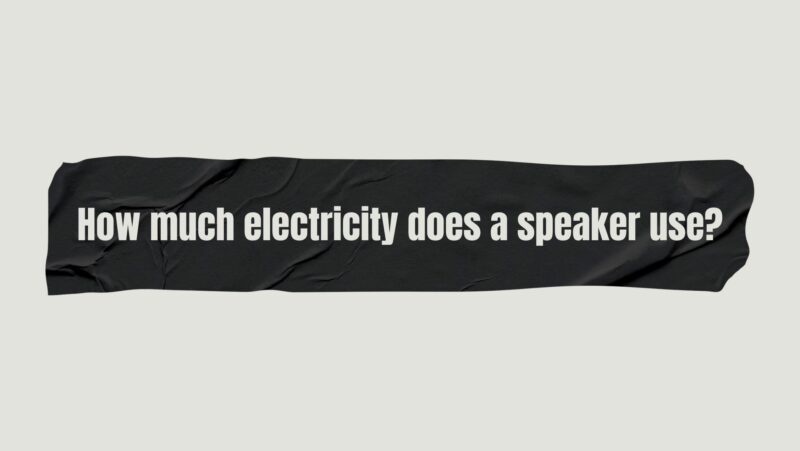Speakers are an essential part of any home entertainment system, but they can also be a major source of electricity consumption. The amount of electricity a speaker uses depends on a number of factors, including the size and type of speaker, the volume level, and the amplifier.
- Speaker size: Larger speakers typically use more power than smaller speakers. This is because larger speakers have to move more air to produce sound.
- Speaker type: Passive speakers require an amplifier to produce sound, while active speakers have an amplifier built-in. Active speakers typically use less power than passive speakers.
- Volume level: The volume level has a significant impact on power consumption. Doubling the volume level will typically quadruple the power consumption.
- Amplifier: The amplifier also plays a role in power consumption. A more powerful amplifier will require more power to drive the speakers. However, even a powerful amplifier will only consume a significant amount of power if the speakers are turned up to a high volume level.
A typical bookshelf speaker may only consume around 10 watts of power, while a larger floorstanding speaker may consume up to 100 watts. The volume level also has a significant impact on power consumption. Doubling the volume level will typically quadruple the power consumption.
For example, a 50-watt speaker that is turned up to full volume will consume 50 watts of power. If the volume is turned down to half, the power consumption will be reduced to 25 watts.
The following table shows the approximate power consumption of different types of speakers at different volume levels:
| Speaker type | Volume level (dB) | Power consumption (watts) |
|---|---|---|
| Bookshelf speaker | 70 dB | 10 watts |
| Floorstanding speaker | 70 dB | 50 watts |
| Subwoofer | 70 dB | 100 watts |
| Home theater system | 70 dB | 200 watts |
It is important to note that these are just approximate values. The actual power consumption of a speaker will vary depending on the specific speaker and amplifier being used.
To reduce the power consumption of your speakers, you can:
- Turn down the volume when you are not using the speakers.
- Use speakers that are the right size for your listening space.
- Choose an amplifier that is powerful enough to drive your speakers, but not more powerful than you need.
- Consider using speakers with a built-in amplifier, as these will typically consume less power than speakers that require an external amplifier.
By following these tips, you can reduce the power consumption of your speakers and save money on your energy bills.


